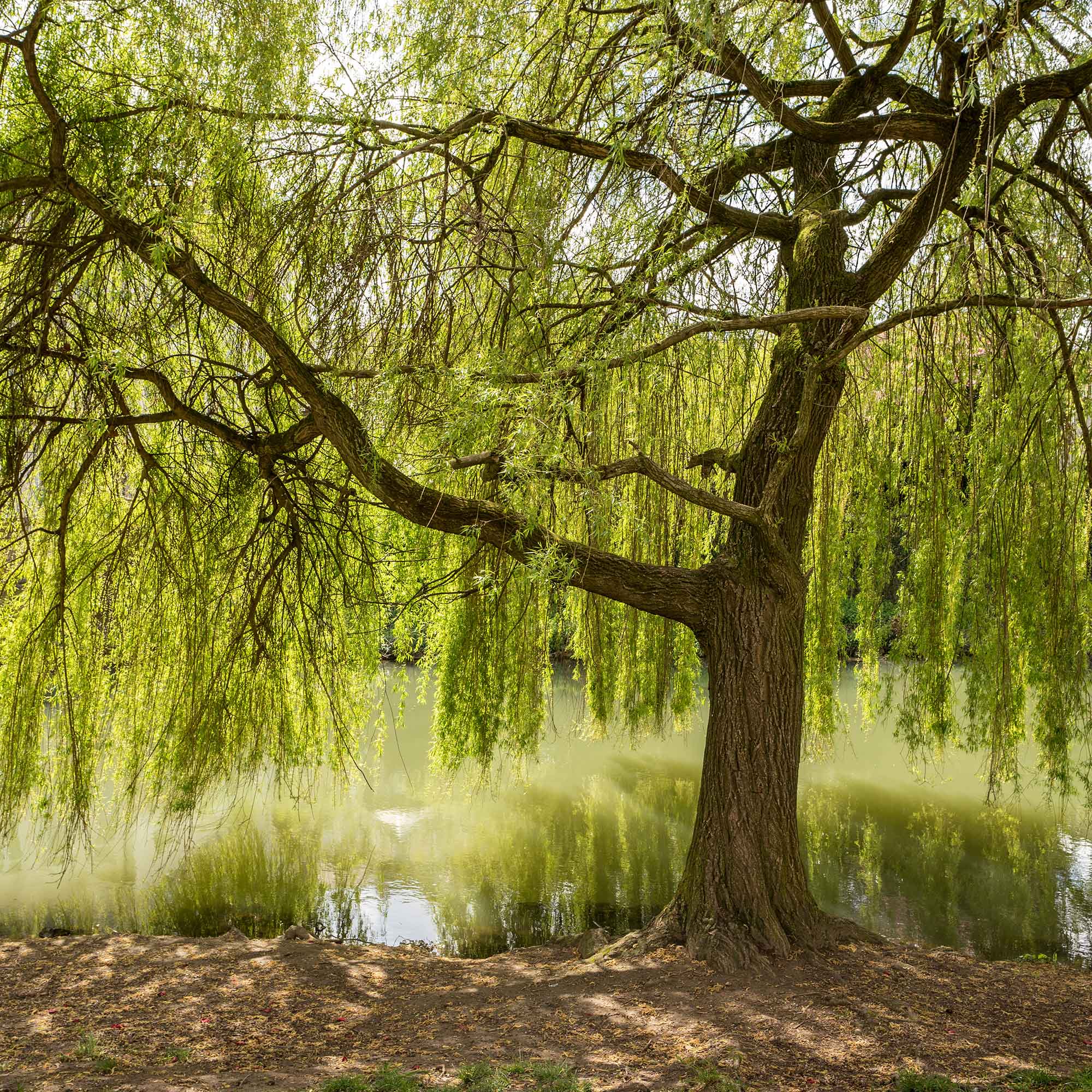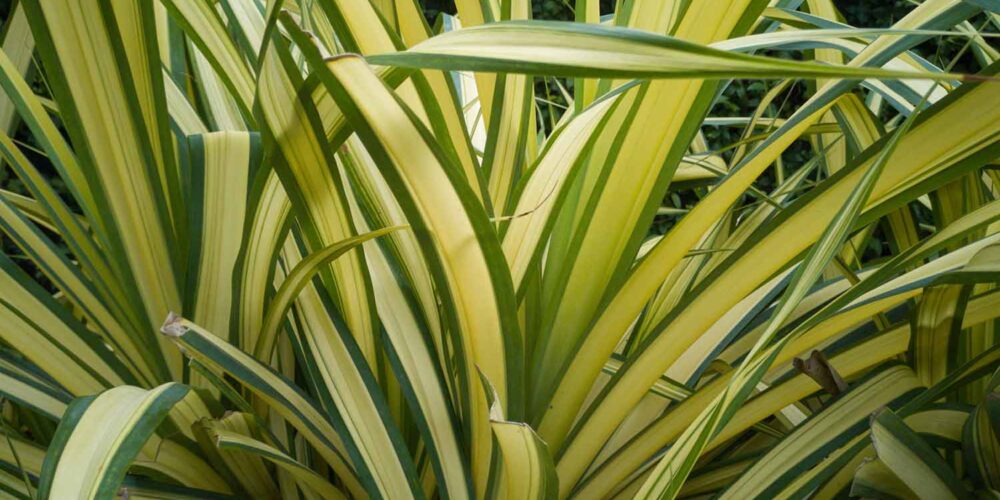
About Salix babylonica (Weeping Willow)
Prized for its foliage, Salix babylonica is an easily recognized tree. Its long sweeping green leaves sway with the slightest hint of wind and is an interesting contrast against its rough grayish brown bark. Its overall average landscape size reaches 30-50′ tall by 30-40′ wide and as a fast grower, you can expect a young tree to grow as much as 10′ per year. A deciduous tree, Weeping Willow welcomes long tubular flowers around February just before the arrival of new foliage growth. The flowers are filled with nectar welcoming pollinators and have a blooming season that can last as long as the beginning of summer. With a relatively short life-span, this tree can last up to 30 years.
Care and Planting Instructions
Plant Weeping Willow in an area that receives full sunlight and plant in a large enough area to support its size at full maturity. They will need 10 gallons 2-3 times a week for every inch in trunk diameter for newly planted tree. After establishing a healthy root system watering frequency can be reduced but be sure to maintain wet soil moisture. To clean up its appearance and promote new growth you can remove spent limbs by cutting where the branch meets the trunk. Occasionally branches can grow upright instead of to the side and should be pruned to maintain a weeping form. General fertilizer can be used if needed.
Landscape Design Ideas
Its stretching branches and long foliage make this tree a perfect shade or patio option best planted near benches in a park or near a seating area. Its feather-like foliage adds interest in woodland gardens, zen or Japanese gardens and even rock landscape designs. This specimen loves water so an obvious landscape design idea is to plant this tree next to a pond or near other plants that share similar water requirements.
Find more plants and tips here.


